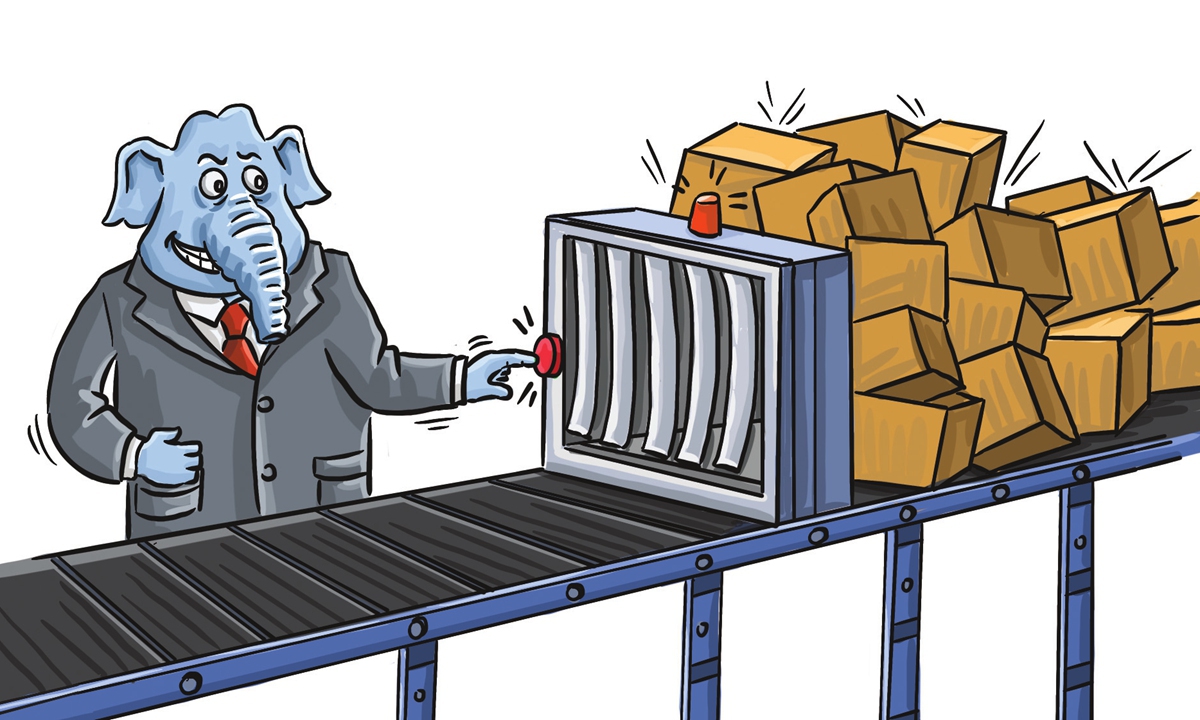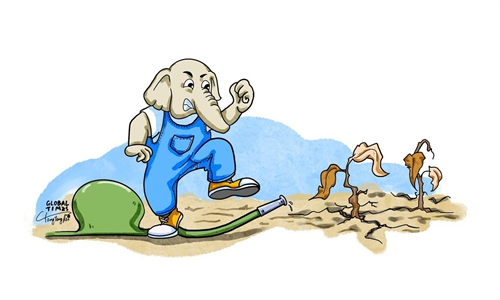
Illustration: Xia Qing/GT
After India's recent move restricting the imports of laptops and other electronics triggered worries among big Western manufacturers, new voices have emerged, pointing out that the import curb is aimed at China.As a display of India's eagerness and anxiety to boost local manufacturing, the changeable and market-distorting measures that seemingly came out of nowhere may be just the beginning. But China won't be a cover-up for India's trade barriers.
While the Indian government did not openly explain the intention of its import licensing requirements for laptops, tablets and personal computers, anonymous Indian officials justified the move through several media outlets, revealing the hope of reducing the country's trade deficit with China, German newspaper Handelsblatt reported. More than half of India's computer imports, worth about $10 billion each year, come from China, it said.
Paradoxically, the Handelsblatt report also raised the point that Western companies can ultimately benefit from the trade dispute.
This may just play into India's hands. Indian officials have been accustomed to leaking information to the media to "placate" the West by shifting the focus of attention of its new trade barriers to China, creating the illusion that China is the only target.
Most of these leaks are from anonymous sources, a situation that can provide sufficient flexibility for the implementation of trade barriers.
However, Western public opinion appears to buy it and even consider it a good development, reflecting a regrettable regression and degradation.
There is no denying that China is India's most important supplier of electronics products, but it does not change the fact that the new licensing requirement is aimed at global manufacturers including Apple, Samsung, Dell and Chinese companies. Whether they have manufacturing bases in China or not, they will have to spend extra time and effort getting the necessary permits to ship their products to India, and the only way avoid this trouble is to manufacture the products in India.
China remains the most frequent target of Indian protectionism. This is not the first time India has clamped down on Chinese imports to boost its domestic manufacturing, which reflects geopolitical tensions between the two countries as well as economic considerations.
China is a major supplier of many Indian imports. But it needs to be pointed out that India has often borne the brunt of the losses of such import curbs. For instance, after the Indian government imposed a ban on shuttle imports from China in 2020, even practice at the national badminton camp was adversely affected by the shortage of shuttles.
Making laptops and computers is, of course, far more complicated and challenging than addressing the shuttle supply shortage. India simply does not have the ability to reject the import of Chinese computers. If India reduces computer imports, it will seriously restrict the development of India's manufacturing and industrialization.
It would be a big mistake if someone thinks that India's import restrictions could force Chinese investment and Western companies to switch their resources to India's computer industry, which could backfire. This is because if India uses unfair means to undercut China's manufacturing sector, then it would give China every reason to use similar trade restrictions to fight back.
For instance, although India has seen the rapid development of smartphone manufacturing, it is heavily dependent on supplies of Chinese parts. Without the support of Chinese components, smartphone production in India would face serious problems. Similar products that are highly dependent on Chinese supplies may include mechanical equipment, textile raw materials and others.
Before cracking down on Chinese imports, India needs to bear in mind that China won't always sit idly by in the face of its protectionism and India's manufacturing dream and exports would sustain blows without the support of Chinese-made intermediates.



